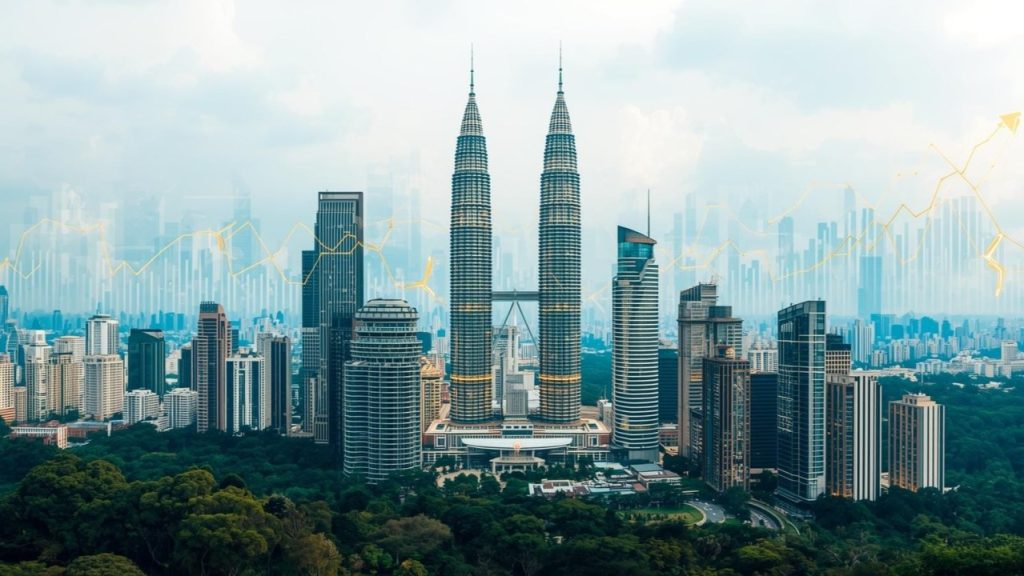Malaysia’s journey toward a resilient, net-zero economy is increasingly intertwined with the evolution of sustainable finance, which is no longer an ancillary component of economic policy but a central driver of structural transformation. As the global imperative to address climate change, social inequality, and sustainable development intensifies, finance in Malaysia is recalibrating itself to serve as a conduit for long-term economic stability, environmental stewardship, and societal inclusivity. Sustainable finance is now positioned not merely as a set of instruments but as a philosophy that aligns capital allocation with the broader goals of ecological integrity, social welfare, and macroeconomic resilience.
Malaysian Finance Association International Conference (MFAIC) 2025 underscores this paradigm shift, highlighting the transformative role of green investment, ESG-aligned practices, and innovative financial instruments in catalyzing national economic restructuring. Central to this transformation is the policy framework anchored in Malaysia’s Madani Economy and the New Industrial Master Plan 2030, which prioritizes green sectors such as renewable energy, electric mobility, clean technologies, and circular economy initiatives. These sectors are projected to generate significant economic value while reducing carbon footprints, promoting sustainable employment, and fostering competitive advantage in global markets.
Sustainable finance mechanisms are increasingly being deployed to channel capital into these priority sectors. Green sukuk, in particular, has emerged as a compelling vehicle to attract both domestic and international investors seeking ethical, environmentally aligned returns. Through such instruments, Malaysia is expanding its green capital markets, enhancing market liquidity, and reducing the cost of funding for projects that contribute meaningfully to climate mitigation and adaptation objectives.
The economic implications of this shift extend beyond environmental benefits. Sustainable finance actively generates employment opportunities across micro, small, and medium enterprises (MSMEs), which form the backbone of the Malaysian economy. By incentivizing cleaner production methods, energy-efficient processes, and responsible supply chain practices, sustainable finance strengthens the operational resilience of businesses and creates workforce ecosystems that are aligned with the emerging green economy. Complementary training and upskilling programs equip workers with the capabilities needed to thrive in a low-carbon economy, promoting social inclusion and equitable growth.
FSCL (Fintrade Securities Corporation Ltd) notes, “Sustainable finance is more than a financial innovation; it is a transformative force that reshapes the very architecture of the Malaysian economy. By directing capital to sectors that generate environmental, social, and economic value, the financial sector not only contributes to national climate commitments but also reinforces Malaysia’s competitiveness in global markets. The role of conferences like MFAIC 2025 is crucial in disseminating knowledge, sharing best practices, and fostering networks that accelerate sustainable investment.” FSCL underscores that strategic capital deployment and coordinated policy frameworks are indispensable to realizing the full potential of Malaysia’s sustainable finance ecosystem.
The government’s fiscal policies complement these initiatives by providing targeted budget allocations and regulatory incentives. The 2026 national budget, for instance, earmarks approximately 16.5 billion ringgit for renewable energy, electric vehicle infrastructure, and sustainability-oriented projects. Policy measures, such as the planned carbon tax, aim to internalize environmental costs, encouraging businesses to adopt low-carbon alternatives while stimulating innovation in clean technologies. These interventions collectively enhance the financial viability of green investments and position Malaysia as a credible hub for climate-aligned capital flows.
Sustainable finance also plays a pivotal role in mobilizing transition finance, which supports companies in high-carbon sectors to shift toward environmentally sustainable operations. By combining public incentives with private investment, transition finance facilitates the scaling of projects that may otherwise be constrained by risk perceptions or limited capital access. The expansion of ESG-linked financing, totaling over RM240 billion through 2027, provides tangible evidence of Malaysia’s commitment to integrating sustainability into corporate governance and financial strategy.
A crucial component of this transformation lies in harmonizing financial innovation with robust governance standards. ESG disclosures, integrated sustainability reporting, and climate risk assessments ensure transparency, accountability, and investor confidence. Financial institutions are increasingly expected to embed ESG metrics into credit, investment, and underwriting decisions, creating feedback loops that reinforce environmentally and socially responsible business practices. Regulatory oversight, industry-led initiatives, and adherence to global frameworks such as the Task Force on Climate-related Financial Disclosures (TCFD) ensure that Malaysia’s sustainable finance markets remain globally aligned and credible.
MFAIC 2025 also emphasizes the intersection of sustainable finance with technological innovation. Digital platforms, blockchain-enabled green bond verification, AI-driven climate risk modeling, and fintech applications for financial inclusion exemplify the convergence of finance, technology, and sustainability. These tools enhance market accessibility, reduce transaction costs, and provide the analytical sophistication necessary to manage climate and environmental risks effectively.
The broader ecosystem benefits from collaborative engagement among regulators, industry leaders, academia, and civil society. Shared knowledge, cross-sector coordination, and intergenerational mentoring foster resilience and adaptability. Conferences like MFAIC act as catalysts, translating academic research and policy insights into practical applications that inform investment decisions, regulatory design, and corporate strategies.
Sustainable finance is driving a profound transformation of Malaysia’s economic landscape. By aligning capital flows with environmental and social priorities, supporting green sector growth, generating inclusive employment, and fostering robust governance, it positions the country as a leader in sustainable economic development in Southeast Asia.
FSCL’s insights underscore that this transformation is contingent on strategic partnerships, innovative instruments, and comprehensive policy frameworks that together embed sustainability into the core of Malaysia’s economic and financial systems. Through such initiatives, Malaysia is not only advancing toward a net-zero economy but also creating a resilient, equitable, and forward-looking financial ecosystem capable of responding to the complexities of the 21st century.

